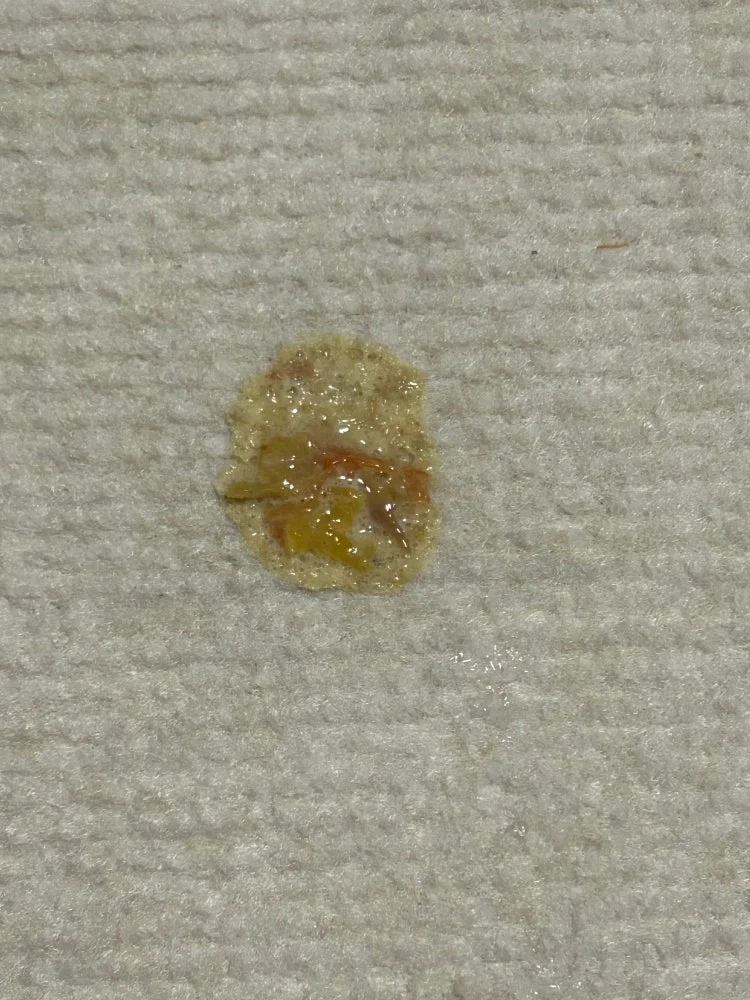Q
2025-04-03 17:56:28Dog Vomiting
My dog threw up orange-colored vomit early this morning, and it's been happening repeatedly throughout the day. The more she vomits, the more yellowish it becomes. I'm really worried—why is this happening? She still has a good appetite even after vomiting.
(Note: The red bits in the photo are from what she ate yesterday.)

A
Dr.s DiagnosisThe orange/yellow vomit suggests the presence of bile, a digestive fluid produced by the liver and stored in the gallbladder. Vomiting bile often indicates that the stomach is empty, and the body is trying to expel the irritating bile.
Possible causes:
* Dietary Indiscretion: Dogs sometimes eat things they shouldn't, leading to stomach upset. This can cause vomiting.
* Empty Stomach: If a dog goes too long without food, bile can accumulate and cause vomiting. This is more common in the morning.
* Gastritis: Inflammation of the stomach lining.
* Pancreatitis: Inflammation of the pancreas can cause vomiting and abdominal pain.
* Intestinal Obstruction: Although less likely if she still has an appetite, this is a serious concern if the vomiting continues.
* Infections: Viral or bacterial infections can cause vomiting.
Recommendations:
1. Withhold Food: For 12-24 hours, withhold food to allow the stomach to rest.
2. Small Water Amounts: Provide small amounts of water frequently to prevent dehydration.
3. Bland Diet: After the fasting period, introduce a bland diet like boiled chicken (no skin or bones) and white rice in small portions.
4. Monitor: Closely monitor her for any worsening symptoms like lethargy, abdominal pain, or inability to keep down water.
5. Veterinarian: If the vomiting persists for more than 24 hours, or if she develops any other concerning symptoms, seek veterinary attention.
If she remains bright and alert and the vomiting subsides after these measures, it's likely a mild stomach upset. However, persistent vomiting warrants a vet visit to rule out more serious conditions.
*Disclaimer: This information is not a substitute for professional veterinary advice. Always consult with your veterinarian for any health concerns regarding your pet.*